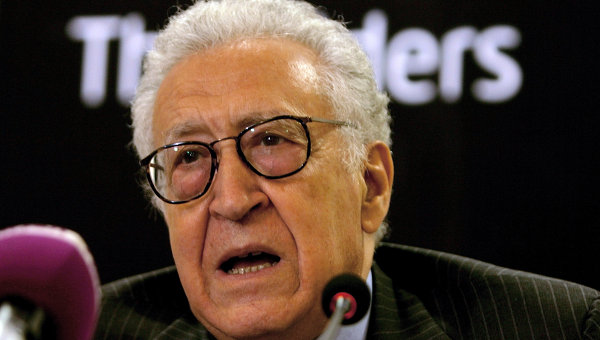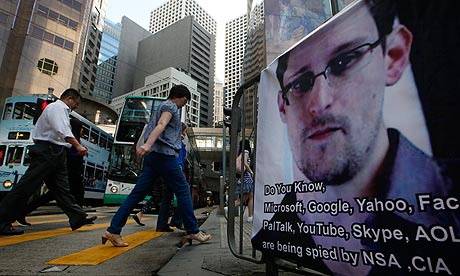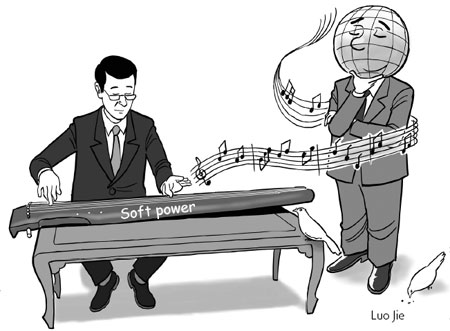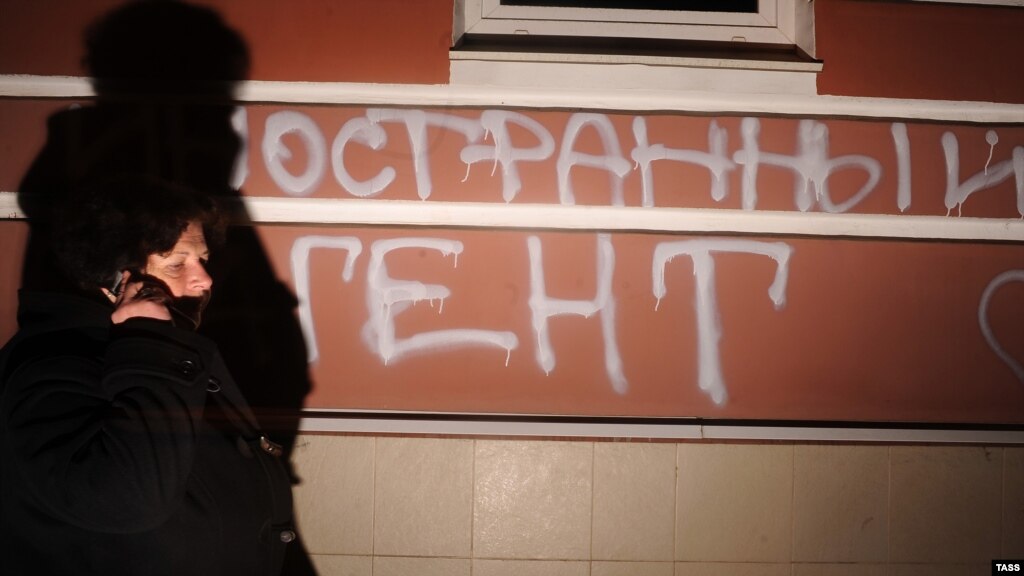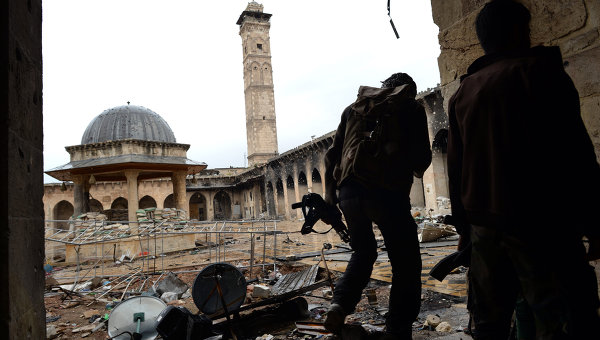Published 15-05-2013, 07:34
The conflict in Syria – where the regime of President Bashar al-Assad is squaring off with insurgents nominally united under the umbrella of the National Coalition for Syrian Revolutionary and Opposition Forces – appears to have entered a new, more dangerous phase.
In early May Syrian government forces came under fresh Israeli air strikes, which Israel sought to justify by pointing to the need to prevent the alleged transfer of Iranian-made missiles to Hezbollah in Lebanon. While President Obama has ruled out direct US military intervention in Syria, there are signs that Washington is contemplating, among several other options, the arming of the opposition to President Assad.
More serious still, earlier reports of the regime using chemical weapons have been followed by UN investigators’ unconfirmed claims that such weapons may also have been deployed by the opposition. Today the world is facing the nightmare scenario of the possible break-up of Syria with chemical weapons falling into the hands of terrorists.
It is against this grim background that the US Secretary of State, John Kerry, met with Russian President Vladimir Putin and Minister of Foreign Affairs Sergei Lavrov in Moscow on 7 May. High on the agenda was the attempt to bridge the gap between Russia and the US in their respective stances on Syria with a view to helping end the conflict in that country.
That gap is very deep indeed. Russia – along with China – believes that if overthrown, Assad would be replaced by a regime dominated by radical Islamists and that Syria would remain unstable and serve as a base for terrorism. This is the main reason why it has continued to honour existing contracts to supply the regime with weapons, while vetoing UN-imposed sanctions against Syria. At the same time, Moscow has called on the international community to unite on finding a political solution. It advocates bringing together the warring sides with the goal of establishing a transitional government in which both sides would participate.
The US and its Western allies have rejected Russia’s proposals out of hand. They insist that the Assad regime – and certainly Assad himself – must go before any transition can begin. Consequently, the West and its Arab allies have supported the opposition both through military supplies and financially. They have also ignored a UN-sponsored communiqué issued from Geneva in June 2012 which called for the implementation of an approach similar to that advocated by Moscow.
It seems that Washington has now agreed to give Russia’s proposals a chance. Following Kerry’s talks in Moscow it was reported that the two countries have agreed to convene an international conference, possibly as soon as the end of May, that would discuss implementing the steps outlined in the Geneva communiqué. For his part, Kerry certainly appears to have been convinced of the wisdom of this course of action. He is quoted as saying that "We believe that the Geneva communiqué is the important track to end the bloodshed in Syria," adding that it must not be a "piece of paper" but rather "the roadmap" for peace.
Lavrov, meanwhile, indicated that Moscow, too, is willing to compromise – in its case, by contemplating the departure of Assad if that would aid the peace process. "We are not concerned about the fate of any individual. We are concerned about the fate of the Syrian people," he remarked.
Coming on the heels of the Boston terrorist attacks and renewed calls for more effective anti-terrorism cooperation, the apparent US-Russia accommodation on Syria is an encouraging development. If the two sides were able to help negotiate a peaceful resolution of the conflict in that country, their cooperation would set an important precedent for dealing with the challenges that the world faces today.
Questions:
- •To what extent are the US and Russia likely to succeed in helping bring peace to Syria? And what impact would that outcome have on bilateral relations?
- •During WWII, the United States and the USSR were able to unite against the common foe of Nazi Germany. Is this a valid analogy in the face of today’s grave global challenges – not least Syria?

The topic for the Discussion Panel is provided by Vlad Sobell,
Editor, Expert Discussion Panel
Professor, New York University, Prague
Editor, Consensus East-West Europe
Expert Panel Contributions
Edward Lozansky
President American University in Moscow
Back to the WWII alliance but on a more solid footing
Sorting out the horrible mess in Syria in particular and in the Middle East in general requires a coordinated effort by the former World War II Allies plus China. It has now become obvious that the United States cannot do the job, neither single-handedly nor even with the help of NATO. America can topple unwanted regimes, but it is unable to engage in a sustained nation building, especially in the Middle East. Iraq, Afghanistan and, most recently, Libya, offer clear proof of its failure in this respect.
US President Barack Obama has painted himself into a corner. Regardless of what moves he might make in Syria, he is sure to come under harsh criticism. However, he is fortunate enough to have two very capable lieutenants at his side, men who are in a position to calm down the hotheads demanding that America leaps feet first into yet another military quagmire.
Faced with a serious reduction in the Pentagon's budget, Secretary of Defense Chuck Hagel has little appetite for another adventure. Secretary of State John Kerry understands that only with Russia's and China's help is there any possibility, however remote, of arriving at a peaceful resolution of the conflict. Owing to the many formidable obstacles on the road to peace – such as ethnic and religious internecine strife, terrorism, and regional geopolitical ambitions of various players – there are, of course, no easy solutions. Still, this route is certainly more attractive to America than plunging into yet another war or throwing weapons and money into the hands of those who could use them against the donors – just as happened in the case of that other American creature, the Taliban.
Judging by the results of Kerry's talks in Moscow with Putin and Lavrov, the two sides appear to have reached an understanding and are agreed that only concerted efforts by the United States, Russia and their allies can produce a credible roadmap for peace in Syria. British Prime Minister David Cameroon took another step in the same direction by flying to Sochi to meet Putin. That meeting took place in much the same spirit.
This is the good news. The bad news is that there are many powerful forces back in Washington that are pushing America toward a military scenario in Syria, despite the highly predictable disastrous results. For these folks, for whom Pat Buchanan coined the fitting term "McCainiacs”, joining forces with Russia is absolutely out of the question. They are playing their own geopolitical games, ones that sober minds find quite hard to understand. Most likely these are the same people who got us embroiled in the disastrous venture in Iraq.
The US public apparently has a much better understanding of what is going on. According to many reliable opinion polls, Americans oppose US air strikes in Syria by 3 to 1; sending arms to the rebels by 4 to 1; and sending US ground troops into Syria by 14 to 1.
Under pressure from the interventionists Obama declared that for him the "red line" for an invasion would be the deployment of chemical weapons by the Assad regime. It did not take long for the "evidence" of use of such weapons to be supplied. However, after Carla Del Ponte of the UN Human Rights Commission stated that sarin gas had been used by the opposition fighting against Assad and not by the Syrian government, poll numbers for those Americans who want to stay out of this war are bound to have risen.
In short, the only logical way to proceed is to act in accordance with what this article began by urging the need for joint East-West efforts to end the bloodshed in Syria. This process has started. It is now vital that the McCaniacs are not allowed to derail it.
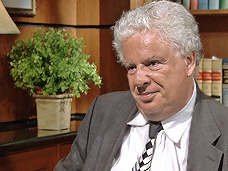 Martin Sieff
Martin SieffChief Global Analyst, The Globalist
Learning the lessons of history in Syria
US media pundits, once again, appear lobotomized to the lessons of history. The growing drumbeat demanding hands-on intervention to topple the government of President Bashir Assad in Syria could open dangerous new chasms of distrust between the United States and the European democracies on one side and Russia and China on the other. Even worse, it could lead to a radical Islamic takeover in Syria and put the lives of hundreds of thousands of religious minorities there at risk.
In fact, US President Barack Obama has proved strong and statesmanlike so far in resisting the chorus of pressures. In this context, his choice of John Kerry as his second secretary of state and Chuck Hagel as his third secretary of defense assumes a new significance.
In dealing with the North Korean crisis, Kerry and Hagel have both already shown an impressive ability to combine resolute deterrence with the recognition that America cannot go it alone but needs a careful multilateral strategy to deal with such issues.
Secretary Kerry practiced this approach successfully in his talks in Beijing on the North Korean crisis. On 7 May he did the same thing in Moscow at his meeting on Syria with Russian Foreign Minister Sergei Lavrov.
The American popular advocates of immediate action to topple President Assad as fast as possible say they can deal with the issue of who comes out on top in Syria afterwards. Like the notorious Bourbon kings of France in the 19th century, they have learned nothing and forgotten nothing. Swift unilateral US action to topple Assad would open the door for the Islamist forces in the opposition to take over with the backing of Iran, the Egyptian government, Hezbollah and Hamas. They would massacre their political opponents, as the Iranian Shiite Islamists did after the 1978-79 revolution in that country. Only careful, coordinated cooperation between the US, the EU, Russia and China can avert this nightmare. Fortunately, Secretary Kerry and President Obama appear to recognize this.
It was Western pressure on the late Shah of Iran, especially from the hapless US President Jimmy Carter and his team, that opened the way to the Islamic Revolution of Ayatollah Ruhollah Khomeini. For the next quarter century, the main force preventing Khomeini and his heirs from spreading their revolutionary radicalism across the entire Middle East by fire and sword was the military power of Iraq, which defeated Iran in their long bloody war from 1980 to 1988.
However, President George W. Bush then performed a signal service to Iran by sending the US armed forces to topple Iraq’s brutal dictator Saddam Hussein in the second Gulf War in 2003. Since then, the radicalization of the entire Middle East has proceeded apace. It was helped most of all by the obsession of George W. Bush and his senior defense officials with spreading Instant Democracy (just add boiling hot rhetoric and stir) across the region as quickly as possible.
Wherever this happened – in Gaza, Egypt and Libya – the extreme Islamist forces took advantage of the opportunity that chaotic, mismanaged democracy gave them to try to take over those societies. They have already achieved this in Gaza and Egypt. They are about to do so in Libya. And Iraq will eventually follow. Moqtada Sadr and his extreme Shiite Islamist forces are waiting in the wings.
The United States should respect Russia and China’s concerns on the future of Syria. Both governments believe that were Assad overthrown, he would be rapidly replaced by a regime dominated by radical Islamists and that Syria would remain unstable and serve as a base for terrorism. The entire history of the region since the dawn of the Arab Spring proves this assessment is an accurate one.
Yet the US and its Western allies ignored their own bitter experience when they undermined the Shah of Iran and then tried to impose Instant Democracy on Iraq. They rejected Russia’s proposals out of hand and continued to insist that the Assad regime and Assad himself had to go before any transition could begin. Yet this was exactly the policy that gave Khomeini a free hand to seize power in Iran and hand it down for generations to his heirs.
But the outcome of the Kerry-Lavrov talks was hopeful. The two sides agreed to convene an international conference, possibly as soon as the end of this month, to try to implement the transition measures in the Geneva communiqué. Kerry explicitly endorsed this approach. "We believe that the Geneva communiqué is the important track to end the bloodshed in Syria," he said, calling it "the roadmap" for peace.
US-Russian cooperation on Syria would open the way for a new era of diplomatic cooperation and deals between the two nuclear superpowers on many other issues. From the bitter lemons of the civil war in Syria, the Untied States and Russia can still make lemonade.
 Maria Dubovikova
Maria DubovikovaPhD Candidate, Moscow State Institute of International Relations
US-Russia cooperation in Syria – and throughout the Middle East – could finally exorcise the ghosts of the Cold War
The Syrian war has driven a wedge between Russia and the US. Both powers have opposing visions of how to bring this bloody conflict to an end. There is a danger that the Middle East is once again becoming a geopolitical battlefield. This would be a most unwelcome development, one that would make conflict resolution only more difficult than ever.
At the same time, it is understandable that Russia’s return to the Middle East region, as part and parcel of its re-emergence as a superpower, fuels concerns in the US. Moscow’s desire to become an influential player in this strategically important region, even under the rules of realpolitik, inevitably generates a clash of interests, mutual distrust and tensions.
However, US Secretary of State John Kerry’s recent visit to Moscow shows that Syria could in fact become a major driver of convergence between Russia and the US. The conflict in Syria is but a sideline event in the much larger and more complex turmoil in the region as a whole. And both powers have ample experience in combating terrorism and conflict resolution. If assisted by other key Western players, this wealth of experience could go a long way to help resolve the conflict in Syria.
The Russian Federation has been struggling with terrorists and militants ("boeviki”) within its borders since the collapse of the USSR. It continues to face low-level insurgency in the Caucasus region and Tatarstan as numerous Islamist terrorist entities seek to establish new centers of radical Islam in Russia as springboards for activities beyond the Federation’s borders.
Moreover Russia has historical experience of establishing a modus operandi not only between Islam and Christianity but also between different Islamic movements. In the Arab world, Russia is perceived as one of the few countries that is able to remain on friendly terms with opposing actors in the Greater Middle East region and even with parties who are at war with one another. Such competences could be very useful if applied to the maddeningly complex situation in Syria.
The US and Russia have an opportunity to work in Syria in tandem, based on mutual trust and the shared desire to bring the conflict to an end. However, it will be up to the Syrian people themselves to determine their country’s future and to ensure that Syria does not turn into a playground for terrorists.
Were the US and Russia to succeed in helping establish peace in Syria, the stage would be set for them to continue to work together toward stability in the Middle East as a whole. Such cooperation would have a positive impact on bilateral relations and might even lay to rest, once and for all, the ghosts of the Cold War.
Unfortunately, recent history does not provide much ground for optimism. We saw a wave of US-Russia cooperation immediately after the terrorist attacks of 11 September 2001. But the dynamic created by those tragic events did not last. Still, this does not mean that the successful resolution of the conflict in Syria could not open a more promising new chapter.




